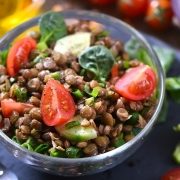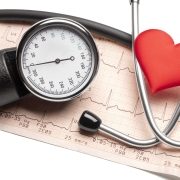Advice to Living a Heart-Healthy Life
February is American Heart Month, so let’s raise awareness and support for heart health in the fight against heart disease!
According to the American Heart Association, heart disease is the number one killer in the United States, and it is the leading cause of death worldwide. There are many risk factors that impact your chances of having heart disease. The National Institutes of Health (NIH) states that preventing heart disease starts with knowing what your risk factors are and what you can do to lower them.
Some risk factors for heart disease include:
- high blood pressure
- high blood cholesterol
- obesity
- diabetes
- smoking
- lack of physical activity
- unhealthy eating behaviors
These risk factors can be managed or changed. Some risk factors that cannot be changed include age, sex, and family history of heart disease.
If you have any questions or concerns about potential risk factors, please check with your NOAH healthcare provider!
Nutrition can impact your heart health
Heart disease is often preventable when people make healthy changes, including diet and how much activity or exercise they get. Living a heart-healthy life means knowing your risk factors and making good choices to protect your heart and stay healthy. Here are some heart-healthy nutrition and exercise tips:
- Choose heart-healthy foods and eat a diet that is balanced with whole grains, fruits and vegetables, and lean protein sources.
- Try to have at least half of your grain intake come from whole grains such as 100% whole wheat bread, oatmeal, brown rice, and quinoa.
- Aim for 1-2 cups of fruit daily
- Aim for 1-3 cups of vegetables daily
- Choose fat-free or low-fat dairy products when having milk, cheese, or yogurt.
Foods to enjoy
- Lean meats such as 95% lean ground beef or pork tenderloin, or skinless chicken or turkey (limit red meats to one time per week)
- Fish such as salmon and tuna (try to eat fish as least once per week)
- Eggs
- Nuts, seeds, tofu, tempeh, edamame
- Legumes such as beans, lentils, and chickpeas
- Incorporate foods that are high in monounsaturated and polyunsaturated fats (good fats):
- Olive oil or avocado oil
- Fish and seafood
- Nuts and seeds
- Nut and seed butters
- Avocados
- Aim for at least 30 minutes of moderate physical activity 5 days every week!
- Brisk walking
- Swimming
- Bicycling
- Gardening
Foods to limit
- Limit high sodium foods. Adults and children 14+ should eat less than 2,300 mg of sodium daily.
- Read food labels and choose foods that are lower in sodium. Look for low sodium, reduced sodium, or no salt added on the food label.
- Choose fresh, whole foods whenever possible and try to avoid processed foods such as frozen meals.
- Avoid the saltshaker and flavor foods with herbs and spices instead.
- Limit saturated fats.
- Saturated fat is usually found in animal-based proteins such as fatty beef, pork, and chicken skin.
- It is also found in full-fat dairy products such as whole milk.
- Butter, lard, coconut and palm oils also contain saturated fats (replace with olive oil).
- Avoid trans fats.
- Trans fats can be found in margarine, shortening, processed sweets, baked goods, and some fried foods.
- Avoid foods with “partially hydrogenated oil” on the ingredient list such as cookies, pastries, baked goods, biscuits, crackers, and frozen dinners.
- Limit foods that are high in added sugars
- Sugar-sweetened drinks such as soda, fruit juice, sweetened coffees, and energy drinks
- Sweets and desserts
- Limit Alcohol
Registered Dietitian Nutritionists provide nutritional care and guidance for patients with nutrition-related conditions like diabetes and pre-diabetes, cardiovascular disease, weight management, digestive issues, food allergies, and more.
If you have any nutrition questions or need help developing a heart healthy diet plan, please reach out to one of the dietitians here at NOAH and make an appointment today!







